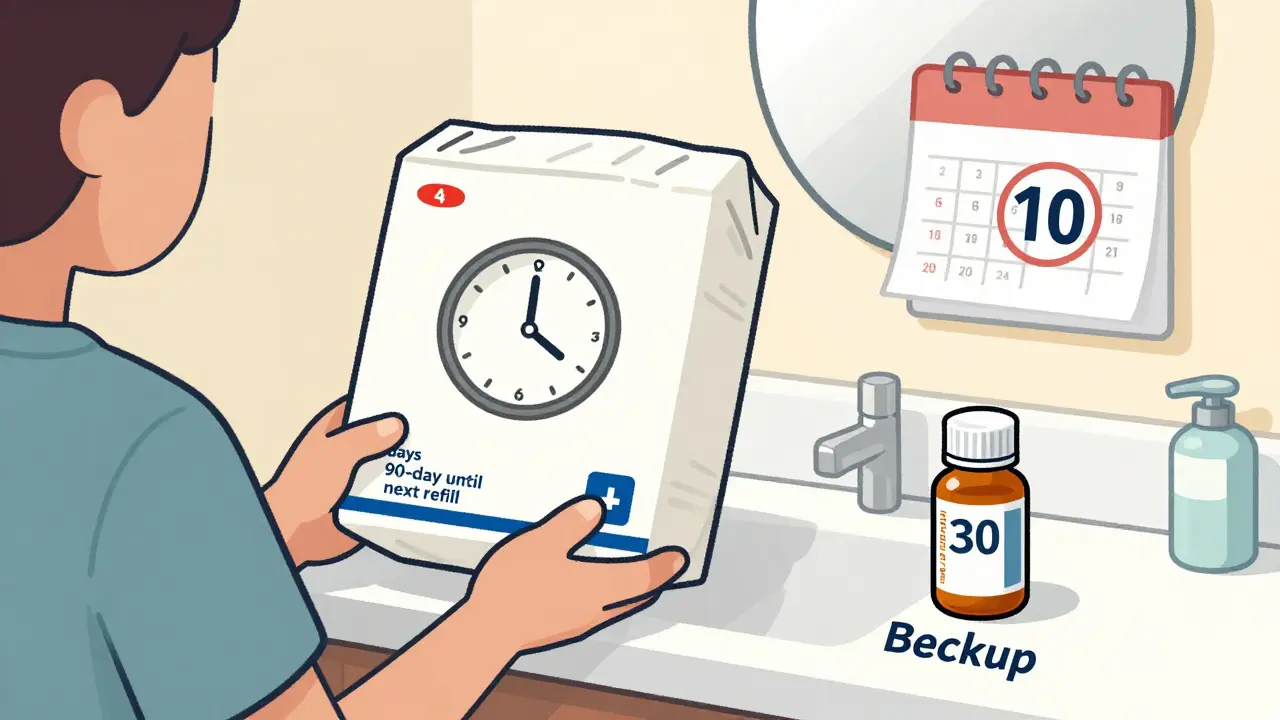Medications play a big role in our health, whether for seizures, migraines, infections, or chronic conditions. But figuring out what to take, how it works, and what alternatives exist can be confusing. Here you’ll find straightforward info on popular drugs, their uses, side effects, and smart ways to handle them.
Take Keppra, for example—it's a common anti-seizure medication used to manage epilepsy. Knowing how it controls seizures and what side effects to watch for helps you use it safely. Similarly, medications like Omnicef are antibiotics that need to be bought carefully online, ensuring you check for reliable pharmacies and proper prescriptions to avoid risks.
Migraine sufferers often choose between branded drugs like Imitrex and their generic versions. Understanding differences in cost, availability, and effectiveness can save you money and deliver better relief. And for asthma, exploring alternatives to Ventolin means you have options if your current inhaler isn’t quite cutting it.
Sometimes, your medication might not suit you, or you want to try newer options with fewer side effects. For example, there are newer alternatives to Methotrexate that aim to treat arthritis with less gastrointestinal trouble. Or, if you’re dealing with fertility issues, drugs like Clomiphene and their alternatives can offer varying benefits depending on your situation.
Awareness about drug interactions, like with Lamotrigine, is crucial to avoid surprises. And when thinking about supplements, herbs like Wormseed are gaining attention for their health perks, but always discuss with your doctor before adding anything new. Every medication or supplement comes with trade-offs, so weighing pros and cons makes a big difference.
This space is all about helping you understand your options clearly—from typical prescriptions to handy alternatives—so you can have informed conversations with your healthcare provider and feel confident in your choices.
Posted by
Jenny Garner
0 Comments

The 80-125% rule ensures generic drugs perform like brand-name versions by testing how much drug enters your bloodstream. It's not about pill strength - it's about absorption. Learn how regulators use pharmacokinetics to guarantee safety and effectiveness.
read morePosted by
Jenny Garner
5 Comments

Drug-induced tremors are a common but often misunderstood side effect of prescription medications. Learn which drugs cause shaking, how to tell them apart from Parkinson’s, and what steps to take for relief - including safe alternatives and when to seek help.
read morePosted by
Paul Fletcher
8 Comments

Insurers use Pharmacy & Therapeutics committees to decide which generics to cover based on cost, safety, and effectiveness. Learn how tiered formularies, therapeutic substitution, and exception requests shape your drug coverage.
read morePosted by
Paul Fletcher
13 Comments

Learn how to save hundreds a year on prescriptions by strategically using mail-order for long-term meds and local pharmacies for urgent or changing prescriptions. Simple steps to cut costs without sacrificing convenience.
read morePosted by
Paul Fletcher
12 Comments

Biosimilars are highly similar versions of complex biologic drugs, approved by the FDA as safe and effective. They offer the same treatment benefits at a lower cost, helping more patients access life-changing therapies.
read morePosted by
Jenny Garner
14 Comments

Melatonin for kids isn't harmless - it's a hormone with real risks. Learn safe dosing, timing, alternatives, and when to call the doctor. What parents need to know before giving melatonin to children.
read morePosted by
Paul Fletcher
15 Comments

Many seniors experience confusion and memory loss not from aging, but from common medications. Learn how to spot drug side effects that mimic dementia and what steps to take to reverse them.
read morePosted by
Jenny Garner
14 Comments

Erectile dysfunction medications like Viagra and Cialis can cause life-threatening drops in blood pressure when mixed with nitrates or alpha-blockers. Learn the real risks, who's most vulnerable, and what to do if you're on heart meds.
read morePosted by
Jenny Garner
14 Comments

Grapefruit can dangerously interfere with warfarin and some SSRIs by blocking CYP450 enzymes that break down medications. Learn which drugs are at risk, why timing doesn't help, and what to do to stay safe.
read morePosted by
Jenny Garner
12 Comments

Cardiovascular combination generics combine multiple heart medications into one pill to improve adherence and cut costs. Learn which combos are available, how much they save, and what to ask your doctor.
read more